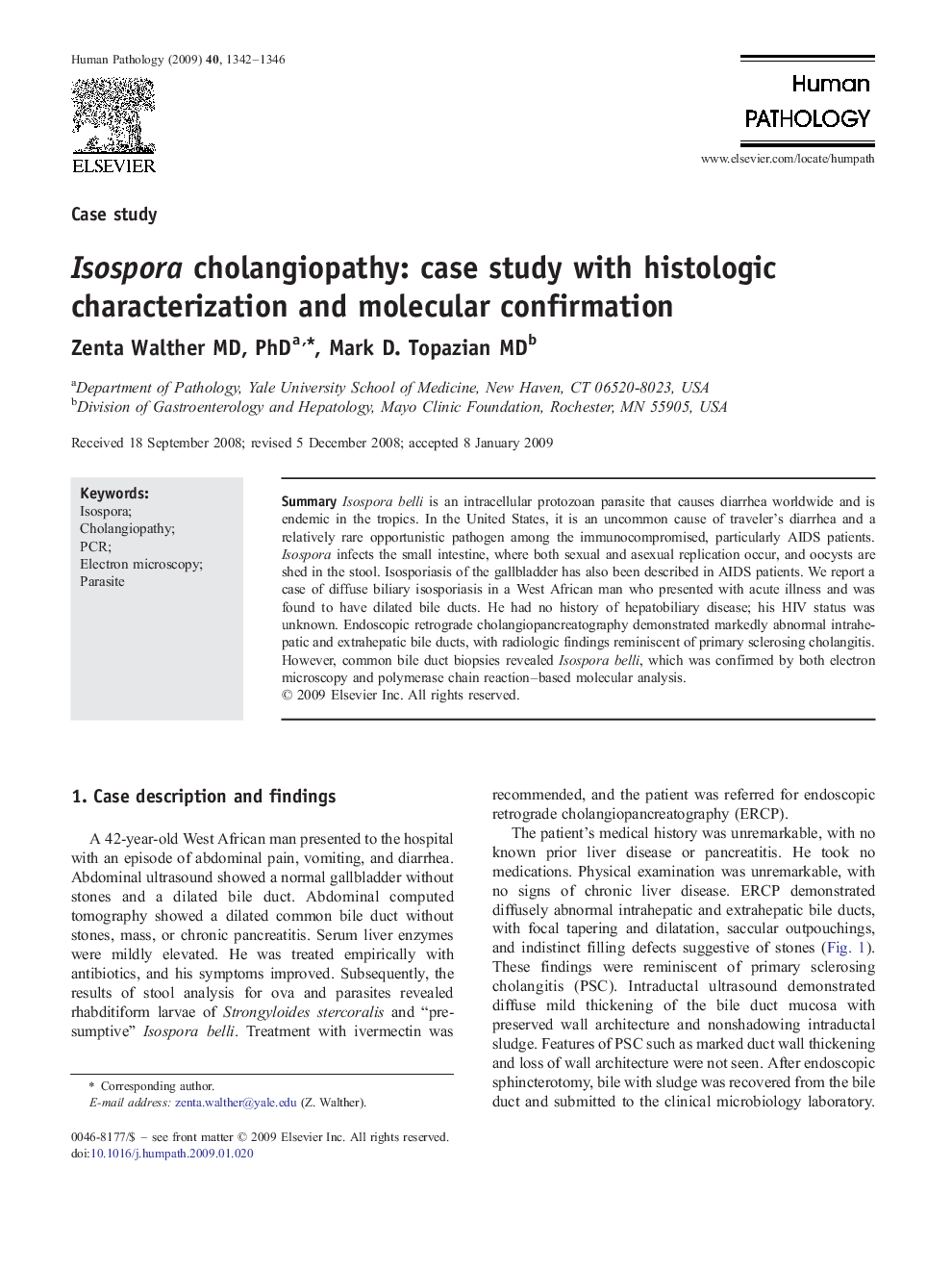| Article ID | Journal | Published Year | Pages | File Type |
|---|---|---|---|---|
| 4134473 | Human Pathology | 2009 | 5 Pages |
SummaryIsospora belli is an intracellular protozoan parasite that causes diarrhea worldwide and is endemic in the tropics. In the United States, it is an uncommon cause of traveler's diarrhea and a relatively rare opportunistic pathogen among the immunocompromised, particularly AIDS patients. Isospora infects the small intestine, where both sexual and asexual replication occur, and oocysts are shed in the stool. Isosporiasis of the gallbladder has also been described in AIDS patients. We report a case of diffuse biliary isosporiasis in a West African man who presented with acute illness and was found to have dilated bile ducts. He had no history of hepatobiliary disease; his HIV status was unknown. Endoscopic retrograde cholangiopancreatography demonstrated markedly abnormal intrahepatic and extrahepatic bile ducts, with radiologic findings reminiscent of primary sclerosing cholangitis. However, common bile duct biopsies revealed Isospora belli, which was confirmed by both electron microscopy and polymerase chain reaction–based molecular analysis.
